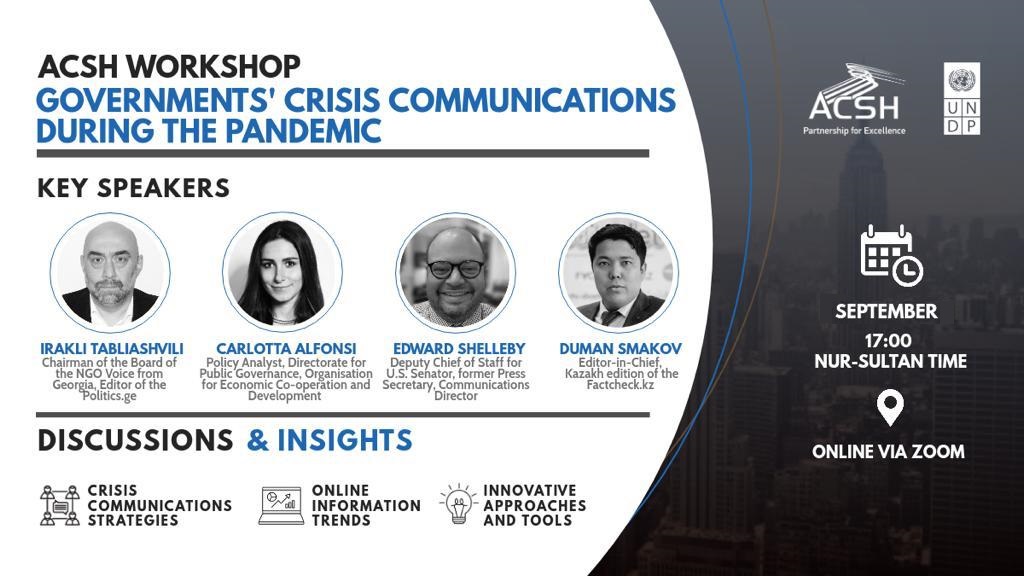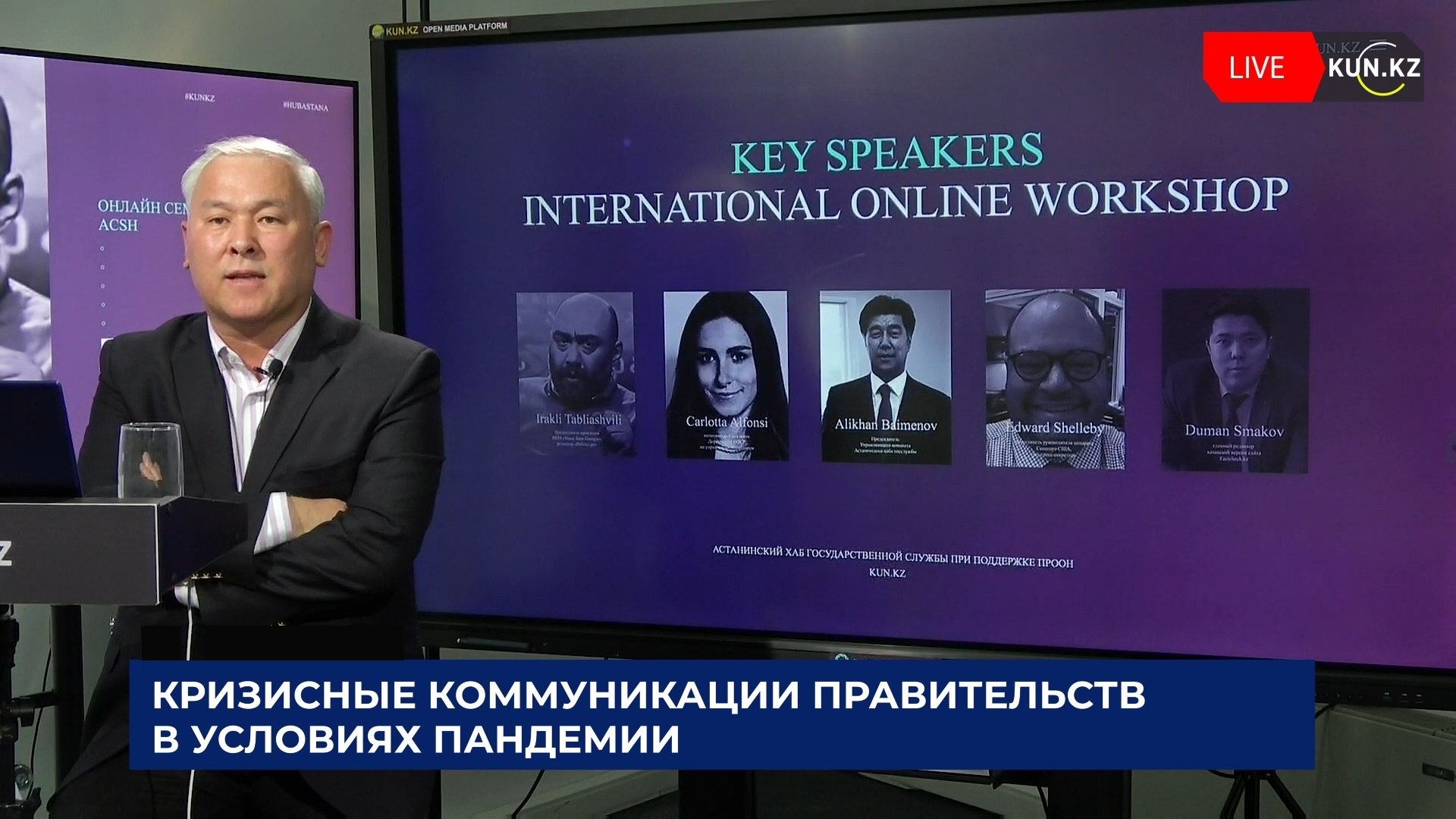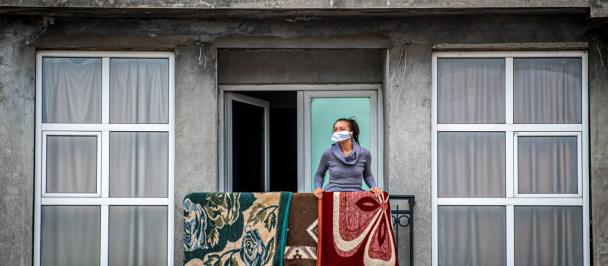Representatives of more than 20 countries discussed effective strategic communications applied by governments during the COVID-19 pandemic. Online session was held based on the initiative of the Astana Civil Service Hub (ACSH), supported by the United Nations Development Programme (UNDP). Alongside with the government representatives and other participants, experts from Georgia, Kazakhstan, OECD and the United States shared their countries' best practices in crisis communications.
The pandemic has shown importance of government communications as one of the essential elements of enhancing public trust and managing crisis.
During the session’s opening, Mr. Alikhan Baimenov, Chairman of the Steering Committee of the Astana Civil Service Hub, stated that “under the crisis conditions, public trust becomes even more important. Trust is a key factor not only as a social value, but also as an effective administrative capital. The level of trust serves to support the efforts of governments, societies, and economies to overcome the crisis, and effective communication strategy is an important tool for building public trust and managing crises”.
As reality has shown, government press offices in many countries turned out to be unprepared for operating in a crisis environment. Media space and messengers have been flooded with rumors, fake news, and myths, often misinforming and confusing the public. Ultimately, this has led to a public distrust in state information sources and contributed to an ignorance of the quarantine measures by many.
“The COVID-19 pandemic has become one of the most serious challenges, faced by the governments around the world. It has clearly emphasized the importance and power of coordinated government communications and provided us with examples of how communication failures or successes can impact other parts of the national response,” noted Mr. Vitalie Vremis, UNDP Kazakhstan Deputy Resident Representative.
The workshop touched upon effective digital communication strategies, government-media interaction techniques, coherent and coordinated messaging and outreach to wider public. The workshop was attended by more than 140 people - heads of authorized government agencies, experts and practitioners from across Europe, Asia, America and Africa, as well as representatives of international organizations such as the UN, OECD, USAID and WGS. Mr. Larbi Djacta, the Under-Secretary-General of the United Nations and Chairman of the United Nation International Civil Service Commission, also took part at the event as a guest of honor.
The event featured leading practitioners who are directly involved in strategic crisis communications, among them Mr. Irakli Tabliashvili, Chairman of the Board of the “Voice from Georgia” NGO, editor of the “Politics.ge”, one of the key people behind recommendations for the Georgian Government in the framework of media research; Ms. Carlotta Alfonsi, Policy Analyst, OECD Public Governance Directorate, who is focusing on innovative communications and disinformation; Mr. Edward Shelleby, Deputy Chief of Staff for U.S. Senator, former Press Secretary, Communications Director, and lastly, Mr. Duman Smakov, Editor-in-Chief, Kazakh edition of the Factcheck Kazakhstan project.

 Locations
Locations




